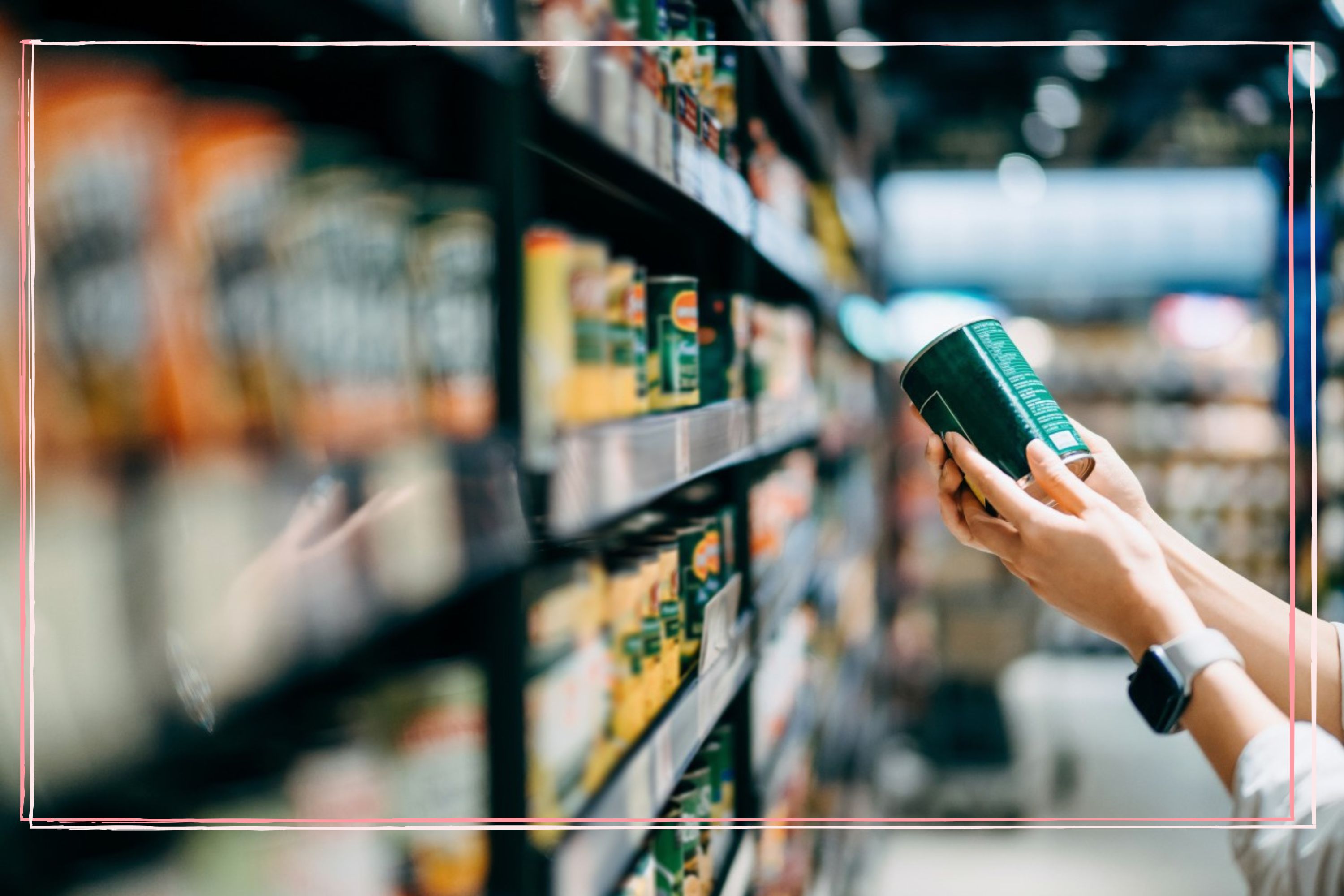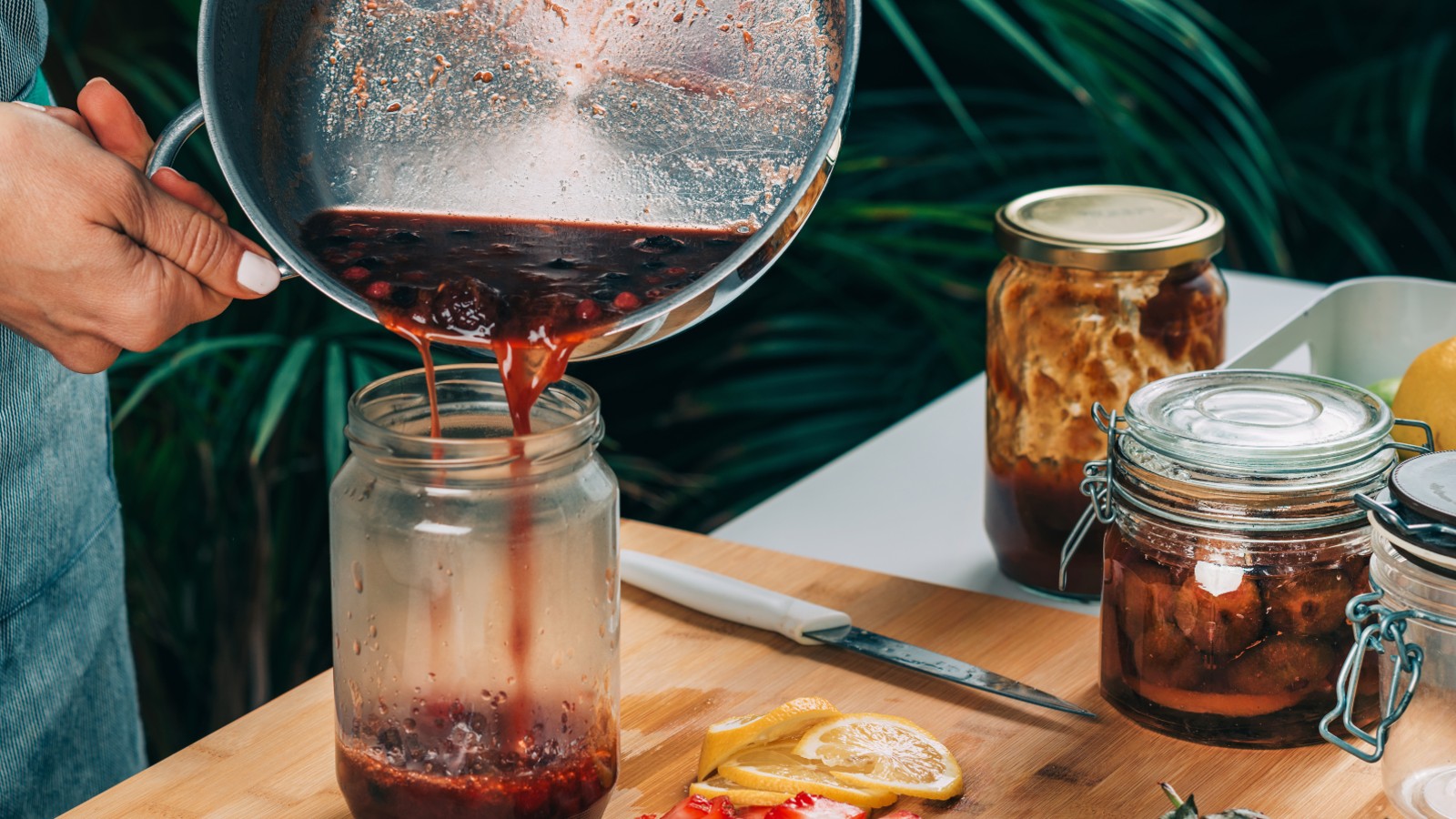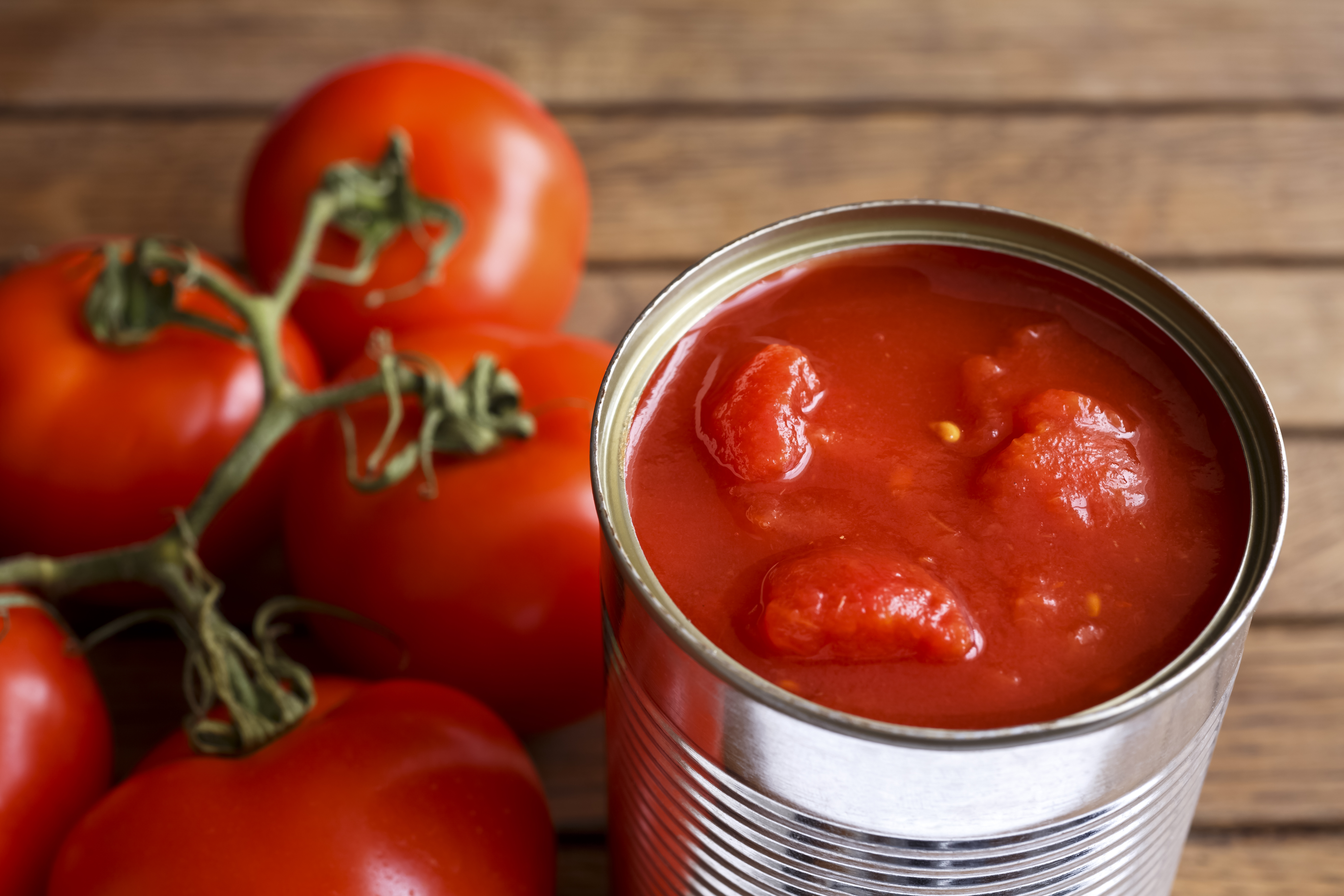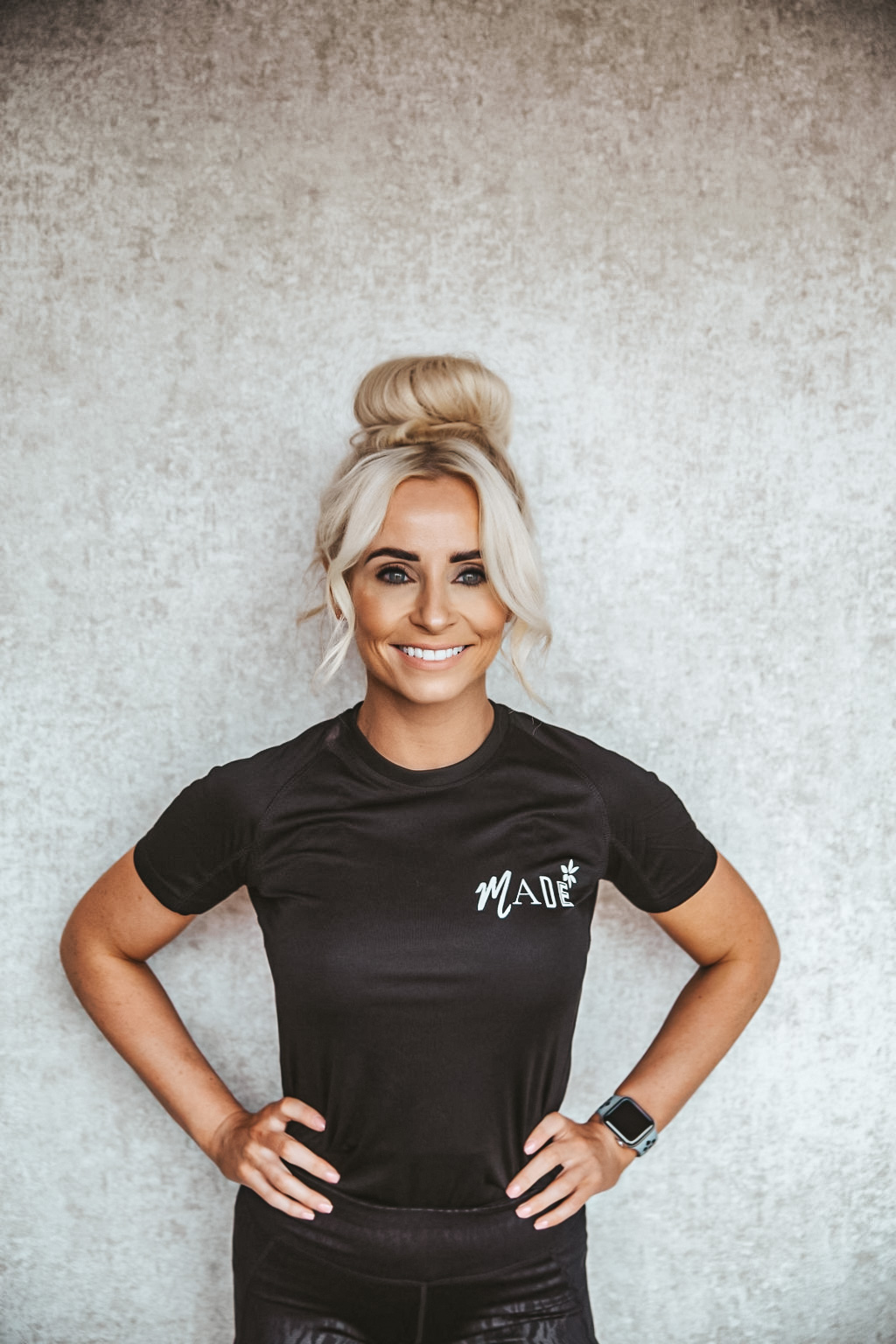How long does canned food last? Advice from the experts
We've asked our experts 'how long does canned food last?' and how to get the most out of your store cupboard favourites


Parenting advice, hot topics, best buys and family finance tips delivered straight to your inbox.
You are now subscribed
Your newsletter sign-up was successful
‘How long does canned food last?’ Is most likely a question on all of our lips right now – with the cost of living on the rise, you might find yourself digging deep into your kitchen cupboards for those cans you stocked up on and forgot about to make cheap family meals.
And, the great thing about canned foods is that they are very convenient and can be stored safely for several years. ‘They often involve minimal preparation time and tend to cost less than fresh products,’ says nutrition expert, Penny Weston. ‘Even though they have a reputation for not being as nutritious, they can be very good for you – and the perfect solution to making money-saving store cupboard meals.’ Opt for fruits and vegetables in water, and products without added sodium to ensure you're still having a healthy meal.
If you’re wondering how long do store cupboard ingredients last, the good news is canned foods have a long shelf life, meaning you can stock up for winter and beyond. Here, our experts lift the lid on the question 'how long does canned food last?' how to can safely at home, and if you really can eat canned food once it's expired.
How long does canned food last?
Canned food, in general, can last indefinitely unopened. In fact, according to the U.S Department of Agriculture, you can even eat canned food after the expiration date – as long as the can isn't damaged in any way – such as leakages, bulging and rust.
Once canned food has been opened, it will last three to four days in the fridge. However, it's best to store in a sealed glass jar rather than keeping it in the original can. Just be sure you know how to sterilise jars and bottles so your leftovers stay fresh and safe to eat.

Low acid canned food
Low acid canned foods are those which have a PH of more than 4.6 and a water activity greater than 0.85, excluding tomatoes and tomato products having a finished equilibrium pH less than 4.7.
‘Low acid foods can generally last for between two-five years stored unopened in the cupboard. Once opened, keep in an airtight container in the fridge for no more than five days,’ says Reema Patel, registered dietitian for Dietitian Fit & Co.
Parenting advice, hot topics, best buys and family finance tips delivered straight to your inbox.
This includes canned beans, canned tuna, canned mushrooms, canned meat and canned poultry, stews, pasta products, and soups (except for tomato soup), as well as vegetables such as potatoes, corn, carrots, spinach, beans, beets, peas, and pumpkin.
There are plenty of tinned tuna recipes and tinned salmon recipes, as well as 50 things to make with tinned chickpeas. So, you'll never be stuck for ideas.
High acid canned food
High acid canned foods are those which have a PH of less than 4.6 and a water-activity of 0.85 or above.
‘High acid food includes tomatoes and fruit products, as well as foods in vinegar-based sauces or dressings,’ says Penny. ‘These foods last for 12 to 18 months in the cupboard, but will last five to seven days in the fridge once opened.’
With 50 things you can make with tinned tomatoes, stock piling this store-cupboard favourite will ensure you have lots of meals at hand for the whole family. Not to mention, getting into the habit of reaching for canned foods and storing your leftovers is a great method for how to reduce food waste, while also keeping your shopping budget low.

Home canned food
Home canned food has a shelf life of around one year. Once opened, you should put the leftovers in the fridge and consume within three to four days. The types of food you’re able to can yourself include those you would ordinarily buy in a can from the supermarket.
‘Canning is a safe method of food preservation if you carry it out properly,’ says Penny. ‘The process involves placing foods in jars and heating them to a temperature that destroys microorganisms that could be damaging to our health, or cause the food to go off.’
There are two types of canning methods available: water bath and pressure canners:
- Water bath canning is used for high acid canned foods and doesn’t require any specialist equipment. Simply submerge the canning jars in a giant pot of boiling water for 10-15 minutes.
- Pressure canning requires a pressure canner – not the same as a pressure cooker. This process is used for low acid canned foods.
‘When home canning, make sure you research how to do it properly,’ says Penny. According to a study published in the journal Emerging Infectious Diseases, home-canned vegetables are the most common cause of botulism outbreaks in the U.S.
Home-canned foods might be harmful if the container they are in is leaking or bulging or looks damaged. If it spurts out liquid or foam, this is a bad sign and if the food is discoloured or smells bad. 'Damage to the can may mean air can enter, creating the ideal environment for bad bacteria to grow,' says Penny.
Want to know how to pressure can safely at home? Watch this video for a step-by-step guide.
Can you eat expired canned food?
Generally, you can safely eat expired canned food, as long as the can is in good condition – as mentioned above.
‘As with home-canned food, damage to shop-bought cans allows air and bacteria to get in and cause food spoilage,’ says Penny. ‘Keep in mind that any large bulges to the can may signify that the food has been spoiled with certain toxic bacteria, meaning the food is not safe to consume, even if it's within its expiry date.’ In this case, you should throw it away.
What to do with expired canned food
High acid canned foods will stay fresh and good quality for 1.5 years after expiry, and low acid foods can stay fresh for 2-5 years after expiry date. After this, the food can still be safe to eat, however the quality (taste and texture) of the food may instead have dropped and be unpleasant to eat.
‘With expired canned goods, it’s important to check for the quality of the can – if there are no holes, bulges or dents/rusts on the can, it can be safe to eat as usual, especially if it has been stored correctly in a cool dark place,’ says Reema. ‘Even though the canned produce is expired, the can has been sterilised and is air-tight, so it’s very unlikely to harbour bacteria.’
Once you open the can, if there is an unusual odour or colour to the food (e.g. mushy texture/cloudy liquid), it would be best to discard the product.
How long does canned food last after opening?
After opening canned food, it generally lasts three to four days in the fridge. However, it ‘s best to store in glass once opened, rather than in the can.
This is because iron and the tin can seep into the foods and ruin the flavour and in some cases lead to health problems such as food poisoning or botulism. Keeping open cans in the fridge is especially dangerous if the food is quite acidic, such as fruits and tomatoes. You should always be sure to keep the food in its brine or juices, too to prolong its longevity.
Video of the Week

Reema is a registered dietitian for Dietitian Fit & Co. She holds a Bachelor of Science in Nutrition & Dietetics from the University of Surrey, and a Master of Science in Sports and Exercise Nutrition from Loughborough University.

Penny is a fitness, wellness and nutrition expert, and the director of Moddershall Oaks Country Spa Retreat and founder of MADE, a 360 degree wellness centre. She is accredited by the Royal Society for Public Health (RSPH) and certified by the Association for Nutrition (AfN).
Rose Goodman joined Future Publishing in 2020 and writes across Goodto.com, Woman & Home, Woman, Chat and Woman’s Own magazines. Prior to pursuing her career as a writer, Rose obtained a degree in psychology and went on to work in adult mental health for five years at Addenbrooke’s Hospital, Cambridge, specialising in eating disorders. She is fully trained in first aid, medical emergency response and motivational interviewing – a directive, patient-style counselling approach to address ambivalence in recovery. She graduated with a MA in creative writing from the University of Brighton in 2017. In her spare time she enjoys writing poetry and attending literary events, and offers weekly support to those living with homelessness. Rose has a passion for raising awareness around mental illness and the importance of prioritising our wellbeing.
